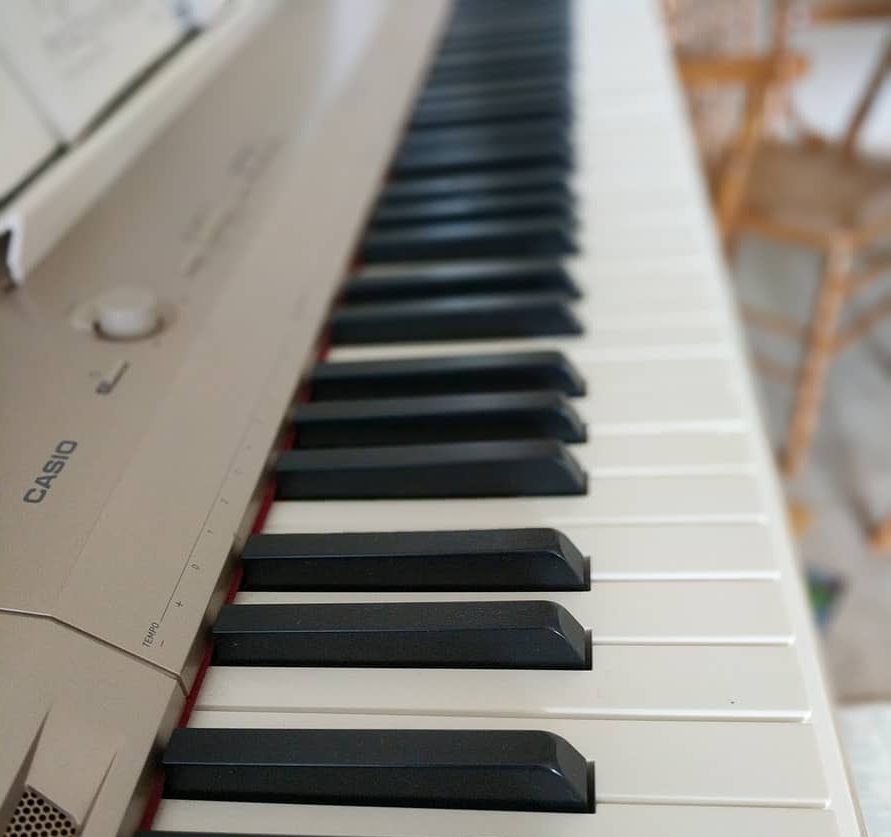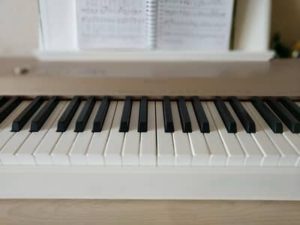
I have taught music out of my home for 17 years now but it wasn’t very long ago that it finally dawned on me, do I need a license or permit to do this? Duh – why hadn’t I thought of that before?
Do you need a license or permit for teaching music from home? Each city has its own laws and ordinances for providing a service from your home such as teaching piano lessons. If you call the city from which you are teaching, they can provide you with the documentation stating the requirements and rules you must follow in order to teach from your home.
Luckily for me, when I called my city, the answer was no. I don’t need a license or permit to teach music out of my home. It’s a good idea to call the city just to make sure you are in the green. If you do happen to need a license or permit, it is usually pretty simple. They usually require a page of information and a check for the fee your city requires. You will want to get that done as soon as possible so you don’t have any legal ramifications. Also, you may want to check with your state to make sure you are following the state’s guidelines for providing this service out of your home. The state in which I live in didn’t have any problems with me teaching piano from home.
For several years, I taught out of my home, reported the income on my taxes, and left it pretty straight up and simple. It wasn’t until a couple years ago that I decided it may be a good idea to create a business entity for my studio.

For one, having an actual business is more professional. Working under a business name creates a relationship with your students and their families that allows for more professionalism.
Another reason to run your studio through a business entity is that you can then write off your expenses on your taxes. This is great for buying pianos or other music equipment, printing costs for music, worksheets, and posters, and electronics such as ipads, laptops, or sound systems that are needed for your studio. Of course, you will want to keep your receipts for those and it wouldn’t be a bad idea to run all this by your accountant to make sure you are getting the best tax advantage for your business.
Having a business could also provide another layer of protection for you for liability. Should someone decide to sue you for one reason or another, having a business entity separates your business assets from your personal assets (such as your car, your home, personal bank accounts, etc.). This makes it much more difficult for someone to bankrupt you should that occur.
Starting a business teaching piano is fairly simple. The market for piano teachers is large, unless you happen to have too many teachers in one area and not enough interested students, which I have never heard of before. I have four piano teachers living on my one street about 200 yards long. You would think we would all be competing against each other, but no, we are actually constantly asking each other if anyone else would take more students because we just can’t fit any more into our schedule.
Many businesses require a lot of upfront costs. Teaching piano has very little overhead cost. Of course you will need a piano and a location. Most potential piano teachers already have both of those things already. The other materials you will need are pretty minimal as far as cost goes.
You will need to decide what business structure you want to use for your studio. There are several out there and perhaps a visit with your accountant, tax expert, or attorney would be good to determine what’s right for you. We decided on an LLC for our business. Our taxes are super simple and straightforward with our LLC.
Once you have decided a business name as well as your business structure, you will need to register your business with the federal and state government. You will get a tax ID for your business and you should be golden from there!
If you are starting up a studio, check out my teacher resources page. It will help get you started on the right foot.
Give your insurance agent a call to make sure that you are covered for any personal liability that may occur while you are running your studio. With people coming and going, you will want to make sure that your insurance covers accidents that could occur at your studio, whether your studio is at home or not. Personal liability under your homeowner’s insurance will provide a defense if you are sued or if someone is injured in your home, up to the liability.
Don’t skimp on the liability limits. The peace of mind is well worth it. We recently upped ours to 500k. It was only a few more dollars and the additional coverage is way more than the 100k we had before. It just makes more sense to add a few more dollars to the bill to have that much more coverage in case the worst were to happen.

Other ways to make your studio more professional
The way you handle your studio will be a large factor in how your students and their families view you as a teacher. Be professional, but real at the same time – most students want a warm, friendly face each time they come for piano lessons. There are several ideas in which you could do this.
Create a welcome letter for your incoming students. I strongly encourage you to create a welcome letter in which students will know right up front what your studio will be like and what to expect. Include in the letter your teaching philosophy, your policy with piano practicing at home, the due dates and accepted way of making payments, and the dates and times of practices and performances. If it’s all right there, that will help you to avoid misunderstandings and questions. Make it as clear and concise, yet warm and friendly as possible.
Create a system for accepting payments. This will be explained in the welcome letter and you need to have this figured out before you begin lessons. Having a way to send them reminders is always helpful in getting on-time payments. My parents appreciate a confirmation or receipt of some sort when the payment has been made. I use Google Wallet which is easy and quick to set up. There are many other options out there from Venmo to Square to name just a few. Of course, you could accept cash or check as well. I personally prefer an electronic form of payment because it is easier to track. But that’s up to you.
Take care in how you set up your studio. Is the entrance to the door easily accessible? Can they be dropped off easily? What will be the first thing your student sees when they walk through the door? Is there sufficient room for your lesson and for the students you will be having? What can you do to eliminate all distractions? Is it clean and well-kept?
Create binders for your students. I love using binders for each of my students! This gives them a place to put the worksheets we do, the pages of information I share with them, dates for performances, practice journals, and more. It’s a designated place for “piano” things to be put. The binder goes home every week and comes back every week. I actually spend almost a whole lesson creating a binder cover with my students that is just for them because I find this really important in what they see every time they sit down to practice or come for lessons. The parents will appreciate knowing where everything is and having it in one place.
Create an organized studio. I feel this deserves its own consideration because it really goes a long way for making your studio professional and in helping your lessons be successful. There are so many ideas out there on just how to do this. Being prepared and organized for each lesson is essential in being professional. In my studio, I have several organizer shelves. In each shelf, I have designated items that include my lesson books, teaching resources, games in bins, and treats/awards in sealed containers. They are easy to find and grab at a moment’s notice. Check out these other ways of organizing your studio.
As you conduct your studio with professionalism, not only will your students be more willing to pay you well, your life as a piano teacher will be much better! Expectations will be clear and the administrative side of your business will go much smoother.
Now that you have done your research, made your studio professional and sorted your insurance and business things out, take a deep breath and relax. Teaching piano or music out of your home is a cinch from here, right?